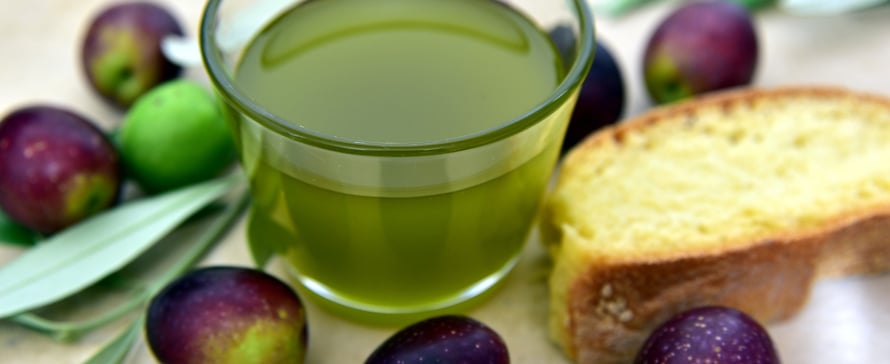Listen to this article
The Mediterranean Diet is synonymous with wellness and health. It is part of the Intangible Heritage of Humanity. It is more than just a diet, it is a philosophy of life, in which taking our diet as a basis involves our social relationships.
It is a way of cooking what we eat, of sharing them at the table, of enjoying our surroundings, a way of generating art and culture. It is a lifestyle present in all the towns of the Mediterranean basin: Spain, Italy, Morocco, Tunisia, Greece,... with its landscapes, markets, gatherings, open-air celebrations. And as the protagonist, the table, where we sit down to eat and enjoy sharing our food.
The presence of the olive tree in the Mediterranean basin can be traced back to the Paleolithic. Although it was born wild, it was Greece that promoted its cultivation giving it culinary, cosmetic and lighting uses, at the same time that it was a symbol of peace, progress and wisdom.
Greece brought the olive tree to classical mythology, a contribution that the Romans continued to give olive branches to their heroes and which extended to other cultures and religions born in the Mediterranean environment.
It was continental Greece and Crete that really gave olive oil a mark not as a tree that already existed but as a food product in which an oil is made, the oil is typified and a kitchen is made.
Oil is synonymous with health, without olive oil the Mediterranean diet is not understood.
Mediterranean basin
Extra Virgin Olive Oil is one of the fundamental pillars of the Mediterranean Diet, together with cereals (especially wheat) and wine. Along with them, foods of plant origin, fresh fruits and vegetables, legumes, nuts, fish, poultry, dairy products, and eggs complete the mediterranean diet.
Olive oil it is undoubtedly the star in the Mediterranean diet as fruits and cereals are found in other diets, but olive oil, it is exclusive and unique heritage of the Mediterranean.
Taste and ways of eating may have varied over the centuries, but the appreciation of olive oil is shared with our ancestors.
Its consumption is not exclusive to the regions or territories of origin of the olive cultivation, but has become the sign of quality of the kitchens of many countries, giving each food or each dish the distinctive of a healthy and balanced diet.
Attributes of olive oil
The attributes of olive oil clearly explain its role. The first of them is that, among all vegetable oils, it is the only one that is extracted by simple mechanical procedures, without any chemical or artificial intervention.
To obtain the seed oils you have to resort to chemical procedures to then refine them.
Virgin olive oil is the juice of a fruit, the olive, which keeps its original flavor intact and is a totally natural product that, properly preserved, maintains its qualities in excellent conditions, since, as we have already mentioned, it has natural antioxidants that protect it of rancidity.
These reasons make it appreciated for its diversity of nuances, for its richness in sensory attributes and for its beneficial effects on health. These three qualities are not found in any other fat.
Olive oil has a great plasticity as an ingredient and as a condiment that we see reflected in its various ways of use.
Its functions in each dish are multiple, it provides aroma, flavor and color, it modifies textures, it is an optimal conductor of heat, it integrates food, and the most important thing and that more and more great chefs are discovering, is that it confers identity on each dish .
Olive oil is compatible with all flavors: salty, sweet, or bittersweet.
We thus find one of the most complete and complex ingredients of the Mediterranean diet, but above all, one of the healthiest.
Health benefits
In the last publication of the World Health Organization, Spain is the third country in the world with the highest life expectancy and Italy the eighth. Obviously, it is not only diet that influences life expectancy, since factors such as quality of health and standard of living are also determining factors in this statistic. But it is very significant.
The benefits of olive oil consumption are provided by its content in unsaturated fatty acids, for fat-soluble vitamins, for antioxidants and for other elements, such as oleocanthal.
Overweight and obesity are a serious problem in both developed and developing countries.
In fact, obesity rates have tripled in the past 40 years worldwide. The role that fats play in diet is, as we know, fundamental.
Countries such as the United States, Mexico, China, Russia, New Zealand, Australia, and the United Kingdom top the list of countries with the highest obesity rates. In addition, other countries such as South Africa, Brazil or India increase their rates exponentially.
"It is crucial to spread the influence that eating our “Mediterranean Diet” and therefore our Extra Virgin Olive Oil can have in any country in the world"
It is crucial to spread the influence that eating our “Mediterranean Diet” and therefore our high quality Extra Virgin Olive Oil can have in any country in the world.
Of course, it is not so simple, you have to study how to combine the culinary customs of each country with those of the Mediterranean Diet and make EVOO the protagonist of this union. It is always good to learn more about the origin, composition and characteristics of virgin olive oil.
Given these data, shouldn't Spain, as the largest producer of Extra Virgin Olive Oil in the world and as a one of the firsts countries with the greatest life expectancy be able to raise its voice and grow the consumption of our source of health throughout the world?
.png)



